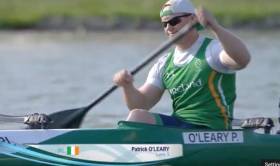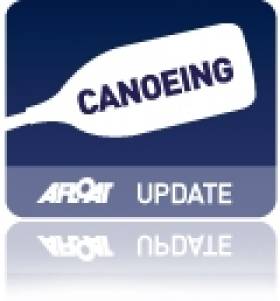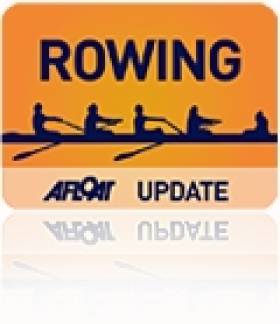Displaying items by tag: Szeged
#Canoeing: Patrick O’Leary realised his dream of qualifying his boat for his second successive Paralympic Games today. The Ireland canoeist finished fifth in the A Final of the VL3 200 metres at the canoe sprint World Championships in Szeged, Hungary. Curtis McGrath of Australia took the gold. O’Leary, who had won his semi-final, was in fourth or fifth right through a race in which six boats qualified for Tokyo.
Barry Watkins missed out on a chance of qualifying for the Olympic Games in the K1 500. The Irishman took sixth in his semi-final and will compete in a B Final.
Canoe Sprint World Championships, Szeged, Hungary (Irish interest)
Men
K1 500 Semi-Final Three: 6 Ireland (B Watkins) 1:40.38.
Paracanoeing – Men’s VL3 200m A Final (Top six nations qualify for Paralympic Games): 1 Australia (C McGrath) 47.42 seconds; 5 Ireland (P O’Leary) 49.27.
Jezierski Sprints Into World Cup Semi-Final
#CANOEING: A fast finish in his heat put Andrzej Jezierski into the semi-finals of the C1 200 metres at the Canoe Sprint World Cup in Szeged in Hungary today. Jezierski finished third in a heat which was won convincingly by Alexey Korovashkov of Russia.
Jenny Egan in the K1 200 metres and Peter Egan and Simas Dobrovolskis in the K2 200m also qualified for semi-finals.
Barry Watkins finished third in his semi-final of the K1 500 metres and qualified for the B Final.
Canoe Sprint World Cup, Szeged, Hungary (Irish interest)
Men
C1 200m – Heat One: 1 Russia (A Korovashkov) 41.746, 2 Kazakhstan (M Medetov) 43.888, 3 Ireland (A Jezierski) 43:978.
K1 500m – Heat One: 6 B Watkins. Semi-Final Three: 3 Watkins.
K1 1,000m – Heat Four: 7 B Watkins. Semi-Final Two: 8 Watkins.
K2 200m – Heat Four: 6 P Egan, S Dobrovolskis.
Women
K1 200 – Heat One: 7 J Egan
K1 500 – Heat One: 7 J Egan. Heat Two: 7 J Burke. Semi-Final Two: 8 Burke. Semi-Final Four: 9 Egan.
K1 1,000 – Heat One: 4 J Burke.
Ireland Take Bronze in World University Rowing
Ireland's senior eight took bronze at the World University Rowing Championships at Szeged in Hungary today. Britain were well in control through the race, but Ireland were always in medal contention and pushed France into fourth. Estonia took the silver. The Ireland crew is built around the outstanding Queen's University eight, with Dave Neale and Finbar Manning of UCD in the bow and fifth seat respectively. Results are below and also attached for download as a pdf.
Click this link for Irish Rowing details
Click this link for the Latest Rowing News






























































